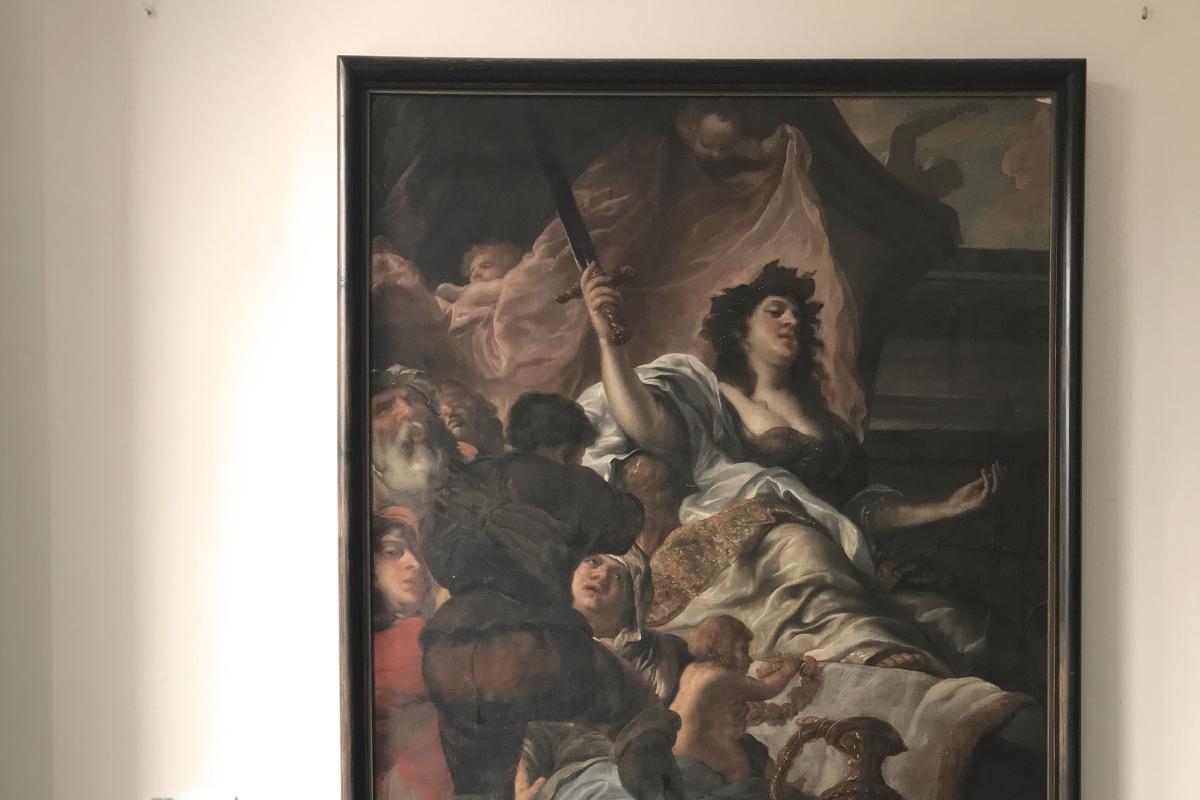Ten objects in the permanent exhibition, some of which entered the collection via suspicious channels, tell stories about the art trade, “degenerate” art, unlawful confiscations, covetous ambitions, art theft and Adolf Hitler’s plans for a “Führer Museum” in the Austrian city of Linz.
Light is also cast on the actions of former museum directors. Fritz Fuglsang, who held office from 1928 to 1961, demonstrably purchased unlawfully seized cultural assets from Jewish ownership and was not overly conscientious in abiding by laws and regulations, as was the case with the painting Justitia by the Baroque painter Jürgen Ovens: the Goddess of Justice literally went on trial herself because a Danish art dealer imported the painting into Germany without permission in 1953 and sold it to the Flensburg museum. Today, the impressive painting hangs in the stairwell of one of the museum buildings, Heinrich-Sauermann-Haus. There is also incriminating evidence against Fuglsang’s assistant and successor Ellen Redlefsen. Thanks to funding from the German Lost Art Foundation, Museumsberg Flensburg has been investigating the provenance of its collection for Nazi-looted art since 2016.
The exhibition will be on display at Heinrich-Sauermann-Haus, Museumsberg Flensburg until 31 December 2023.
See: https://www.museumsberg-flensburg.de for details.


